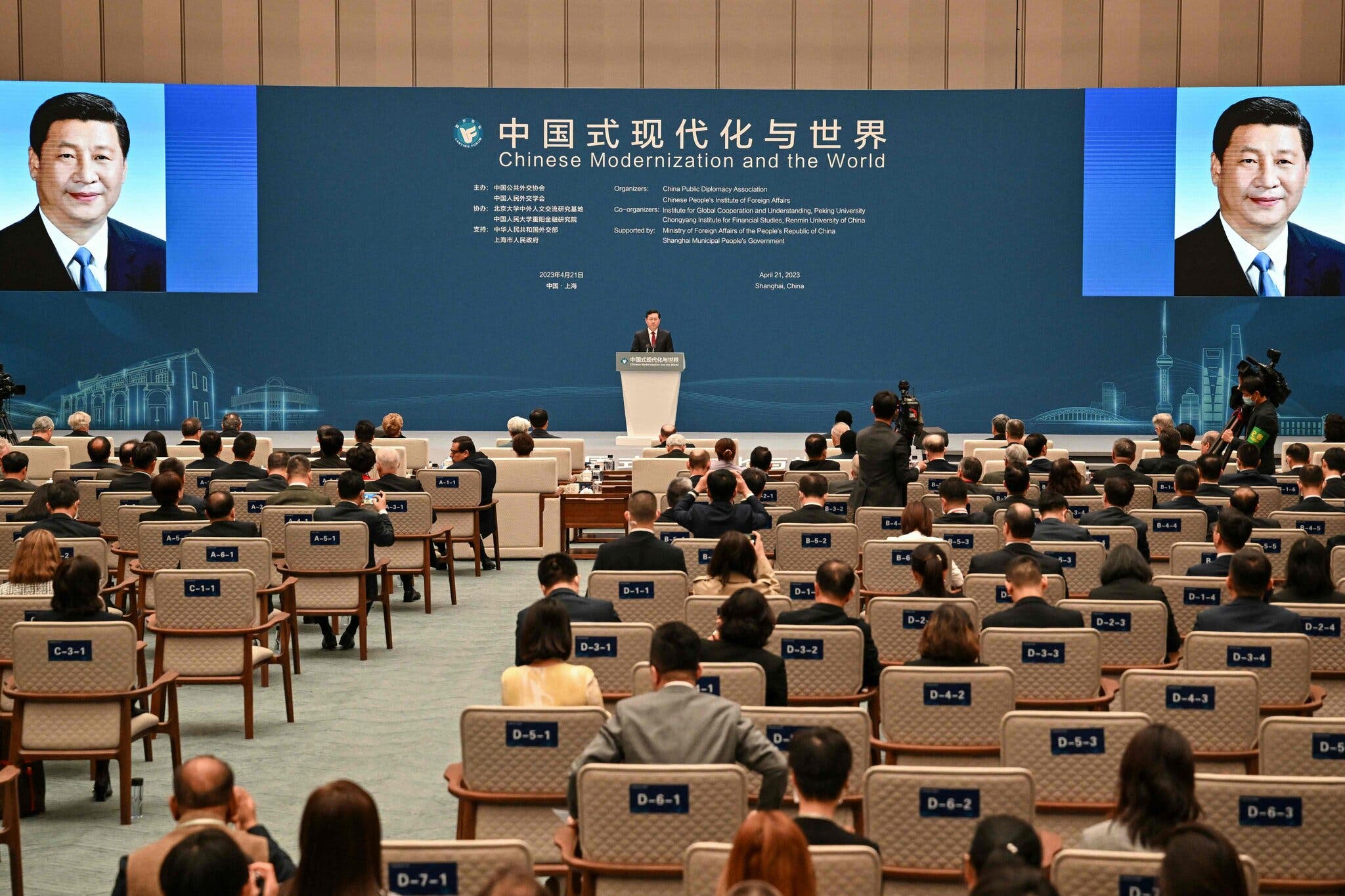The China Factor: How It Affects Luxury Car Brands Like BMW And Porsche

Table of Contents
The Sheer Size and Growth of the Chinese Luxury Car Market
Market Dominance and Potential
China's luxury car market is the largest globally, surpassing even the United States and Western Europe combined. Its continued growth presents unparalleled opportunities for brands like BMW and Porsche, making it a key focus for their global strategies.
- Statistics: In 2023, the Chinese luxury car market reached [insert actual statistic - e.g., X million units sold], representing a [insert percentage]% year-on-year increase. Industry analysts project continued growth at a rate of [insert percentage]% annually for the next [insert number] years.
- Comparison: This dwarfs the US luxury car market, which is estimated at [insert statistic] and the Western European market at [insert statistic], highlighting China's dominance.
- Consumer Spending Power: The rising middle class and a growing number of high-net-worth individuals fuel this explosive growth, signifying a significant increase in disposable income dedicated to luxury goods, including premium vehicles.
Government Policies and Regulations
Government regulations significantly impact luxury automakers' operational strategies in China. These range from import tariffs and environmental standards to electric vehicle (EV) mandates.
- Import Tariffs: High import tariffs on foreign vehicles incentivize local production and impact pricing strategies. Luxury brands often establish local manufacturing facilities to mitigate these costs.
- Environmental Standards: Stringent emission regulations push manufacturers to prioritize fuel efficiency and embrace electric vehicle technology. This necessitates significant investments in research and development and adaptation of product lines.
- EV Mandates: The Chinese government is actively promoting the adoption of electric vehicles through various incentives and mandates. This compels luxury brands to invest heavily in their EV offerings and charging infrastructure. Failure to comply can lead to significant market penalties and lost opportunities.
Evolving Consumer Preferences in China
The Young, Affluent Consumer
The Chinese luxury car buyer is increasingly younger, more tech-savvy, and demands personalized experiences. Understanding this demographic is paramount for success.
- Changing Demographics: The typical luxury car buyer is no longer limited to older, established executives. A significant portion of the market now comprises young professionals and entrepreneurs in their 20s and 30s.
- Tech Preferences: These consumers expect cutting-edge technology, including advanced driver-assistance systems (ADAS), seamless connectivity, and intuitive infotainment systems. Brands must incorporate the latest tech features to stay competitive.
- Personalized Experiences: Beyond the vehicle itself, the buying experience is crucial. Personalized services, exclusive events, and tailored marketing campaigns are key to attracting and retaining this discerning customer base.
Brand Perception and Image
Luxury brands must carefully cultivate their image in China to resonate with local consumers. This includes considering cultural nuances and adapting marketing messages accordingly.
- Cultural Nuances: Marketing campaigns must be sensitive to Chinese culture and values. Understanding the subtleties of language, symbolism, and social norms is essential for effective communication.
- Brand Storytelling: Luxury car brands often leverage storytelling to establish a strong emotional connection with consumers. This involves crafting narratives that resonate with Chinese values and aspirations.
- Social Media Marketing: Social media platforms like WeChat and Weibo are essential channels for reaching Chinese consumers. Brands must invest in engaging social media strategies to build brand awareness and cultivate a loyal following.
Competitive Landscape and Strategic Responses
Competition from Domestic and International Brands
BMW and Porsche face intense competition from established international rivals like Mercedes-Benz and Audi, as well as increasingly sophisticated Chinese domestic brands like Nio, Xpeng, and Li Auto.
- Intense Competition: The Chinese market is highly competitive, forcing luxury brands to constantly innovate and differentiate themselves to maintain market share.
- Competitive Strategies: Brands employ various strategies, such as aggressive pricing, innovative product development, and strategic partnerships, to gain a competitive edge.
- Technological Advancement: The rapid pace of technological advancement necessitates continuous investment in research and development to stay ahead of the curve and meet the ever-evolving demands of Chinese consumers.
Localization and Customization Strategies
Adapting products and services to meet the specific needs and preferences of the Chinese market is crucial. This includes localized manufacturing, design modifications, and customized features.
- Localized Manufacturing: Establishing local manufacturing facilities helps reduce costs, improve responsiveness to market demands, and meet government regulations.
- Design Modifications: Tailoring designs to suit local preferences, such as incorporating features specifically appealing to Chinese consumers, can enhance market appeal.
- Customized Features: Offering customized features, such as specific trim levels, color options, and technological packages caters to the desire for personalized experiences.
Conclusion
The "China factor" is undeniable in the luxury car industry. The immense size, growth potential, and unique characteristics of the Chinese market necessitate astute strategies from brands like BMW and Porsche to thrive. Understanding evolving consumer preferences, navigating government regulations, and adapting to the intensely competitive landscape are crucial for long-term success. To stay ahead, luxury automakers must continue to refine their understanding of the China factor and invest in tailored strategies that resonate with the Chinese consumer. Ignoring this powerful market force is simply not an option. Learn more about the impact of the China factor on the global automotive landscape and how brands are adapting to its challenges and opportunities. Understanding the nuances of the China market and its unique consumer base is critical for any luxury car brand aiming for global success. Don't underestimate the China factor – embrace it.

Featured Posts
-
 Xis Security Czar Leads Exclusive China U S Trade Talks
May 10, 2025
Xis Security Czar Leads Exclusive China U S Trade Talks
May 10, 2025 -
 Lynk Lee Tu Quyet Dinh Chuyen Gioi Den Nhan Sac Thang Hang
May 10, 2025
Lynk Lee Tu Quyet Dinh Chuyen Gioi Den Nhan Sac Thang Hang
May 10, 2025 -
 Le Cas Epicure La Ville De Dijon Et La Cite De La Gastronomie
May 10, 2025
Le Cas Epicure La Ville De Dijon Et La Cite De La Gastronomie
May 10, 2025 -
 Chuyen Tinh Lynk Lee Va Ban Trai Hanh Phuc Sau Chuyen Gioi
May 10, 2025
Chuyen Tinh Lynk Lee Va Ban Trai Hanh Phuc Sau Chuyen Gioi
May 10, 2025 -
 Understanding Kimbal Musk Philanthropy Restaurants And Political Views
May 10, 2025
Understanding Kimbal Musk Philanthropy Restaurants And Political Views
May 10, 2025
